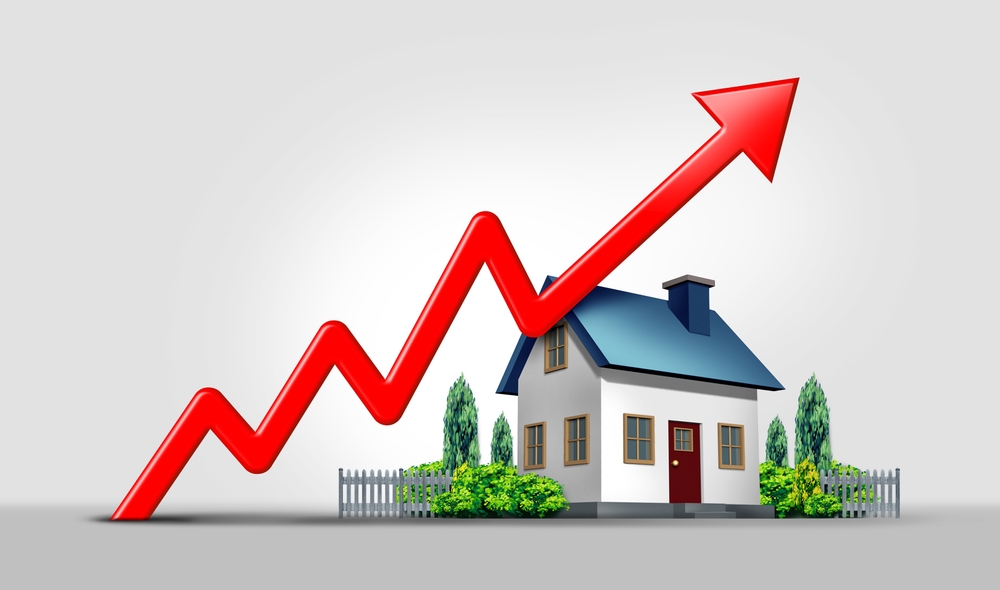Owning a home has always been a major financial commitment, but today, the costs of homeownership are reaching new heights. While many discussions focus on the struggles of first-time buyers trying to break into the market, existing homeowners are also feeling the squeeze.
But why?
Well, it’s simple, really—rising property values, increasing taxes and insurance premiums, and the broader impact of inflation are making it harder for people to afford even their basic monthly expenses. Let’s break down the key reasons why so many homeowners are struggling and explore actionable steps you can take if you find yourself navigating these challenges.
Skyrocketing Home Prices: A Double-Edged Sword
Over the past few years, home prices have surged. On the surface, this seems like great news for homeowners. After all, a higher property value means more equity. However, this increase in value comes with two significant financial burdens…
First, if your home is worth more, your property tax bill is also going up. And in many areas, it’s not just the assessed value increasing—local governments are raising tax rates as well. This double hit means homeowners are shelling out more money each year just to stay in the same house. If you’re on a fixed income or tight budget, this added expense can be a serious strain. 
Secondly, increased home values result in higher property insurance premiums. The logic is simple: if your home is worth more, it would cost more to rebuild in the event of damage. But it’s not just rising home values driving insurance costs up. The past few years have seen a spike in natural disasters, from wildfires to hurricanes, which has prompted insurance companies to raise rates across the board. Some homeowners in high-risk areas are even finding their policies canceled, forcing them to seek more expensive alternatives.
The Debt Trap: A Growing Concern
With homeownership costs on the rise, many people are turning to debt just to keep up with everyday expenses. A recent CNBC report revealed that 82% of millennial homeowners regret their purchase. In some cases, homeowners are taking on additional debt just to maintain their standard of living. This is a worrying trend, as it suggests that many people are financially overextended.
Single Homeowners Feel the Squeeze
While all homeowners are facing financial pressures, the burden is even heavier on single homeowners. A recent Redfin survey found that 70% of single, divorced, or separated individuals struggle to afford their mortgage or rent payments, compared to 52% of married homeowners. Without the benefit of dual incomes, single homeowners often have less flexibility to absorb unexpected costs or rising monthly expenses.
Adding to the problem, more homeowners are falling behind on payments. As of September 2024, about 1 in 20 homeowners was late on their mortgage. This trend highlights the increasing difficulty people are having in keeping up with their financial obligations.
Inflation: The Silent Homeownership Killer
Inflation is affecting nearly every aspect of life, and homeownership is no exception…
Even as wages stagnate, the cost of essential goods and services continues to rise. Home maintenance, fuel for heating, groceries, and even everyday household repairs have all become significantly more expensive. When you combine these costs with increasing mortgage payments (for people with adjustable-rate loans), it’s clear why so many homeowners feel stretched to the limit.
Rising Interest Rates on Mortgages
 Mortgage interest rates have climbed significantly over the past few years, making monthly payments higher for new buyers and those refinancing. Even homeowners with adjustable-rate mortgages (ARMs) are feeling the pinch as their rates reset to higher levels, increasing their monthly costs. Higher interest rates also make it harder for homeowners to sell, as potential buyers face steeper borrowing costs, reducing demand and making it more challenging to move or upgrade homes.
Mortgage interest rates have climbed significantly over the past few years, making monthly payments higher for new buyers and those refinancing. Even homeowners with adjustable-rate mortgages (ARMs) are feeling the pinch as their rates reset to higher levels, increasing their monthly costs. Higher interest rates also make it harder for homeowners to sell, as potential buyers face steeper borrowing costs, reducing demand and making it more challenging to move or upgrade homes.
Homeowners Association (HOA) Fees on the Rise
If you live in a neighborhood with an HOA, you’ve likely noticed that dues have increased. Rising maintenance costs, insurance premiums, and inflation-driven expenses are causing HOA fees to climb, sometimes substantially. In some communities, these fees can rival a second mortgage payment, making homeownership even more costly.
Younger Generations Struggling to Enter the Market
The challenges of homeownership aren’t just affecting those who already own homes; they’re also making it more difficult for younger generations to buy their first property. The median age of first-time homebuyers has climbed to a record 38 years old. This delay in homeownership has long-term financial consequences, as it reduces the time younger buyers have to build equity and create generational wealth.
Practical Steps to Stay Afloat
While these challenges can seem insurmountable, there are steps you can take to regain control of your finances…
First, if you don’t already have a budget, now is the time to make one. Start by categorizing expenses into “essential” and “non-essential” categories. Identify areas where you can cut back, even if it’s just temporarily. A solid budget will help you stay on top of your finances and avoid unnecessary debt.
Next, skipping routine maintenance might seem like a way to save money, but it often leads to bigger (and more expensive) problems down the road. Regularly servicing your HVAC system, cleaning gutters, and inspecting your roof can help you avoid costly repairs in the future.
If you’ve built up equity in your home, tapping into it could be a smart financial move—if done responsibly. Consider using a home equity loan or line of credit to consolidate high-interest debt or to build an emergency fund. However, avoid using home equity for unnecessary expenses, as this can put you in a precarious financial position.
If you’re looking to buy a home, understanding the full cost of ownership is crucial. Property taxes, insurance, and maintenance should all be factored into your budget before making a purchase. Getting estimates ahead of time can help you make a more informed decision about what you can truly afford.
The Bottom Line: Stay Informed and Be Proactive
The housing market is in a challenging state, and both current homeowners and potential buyers need to be smart about finances now more than ever. The key to staying ahead is to be informed, proactive, and strategic with your money. Owning a home is a journey, and while the road may be tough, the right knowledge and strategies can help you stay on the path to financial stability and long-term success.
I’m a serial entrepreneur, a veteran, a real estate agent, and someone who’s called California home for the better part of three decades. I know this area inside and out, and I’m here to help you find the perfect home. If you have any questions, feel free to reach out!


